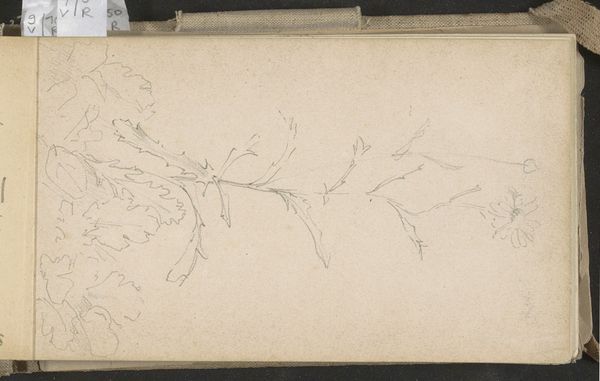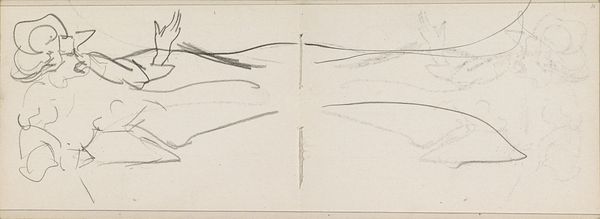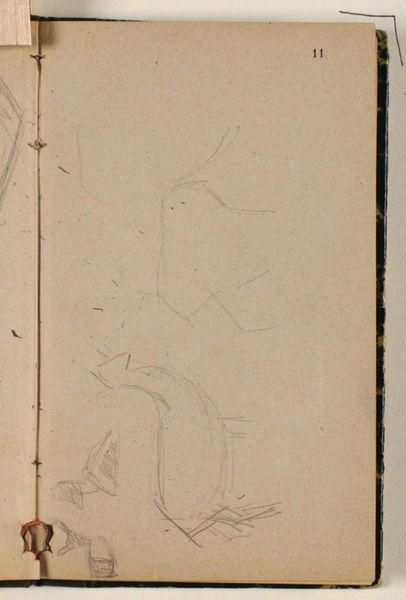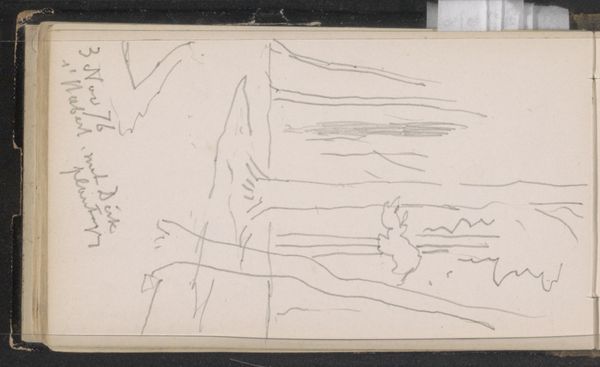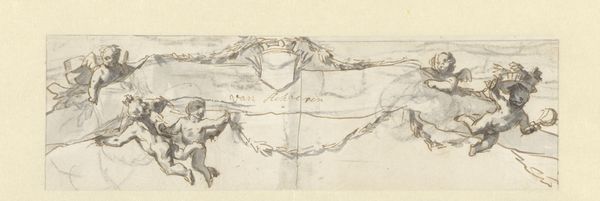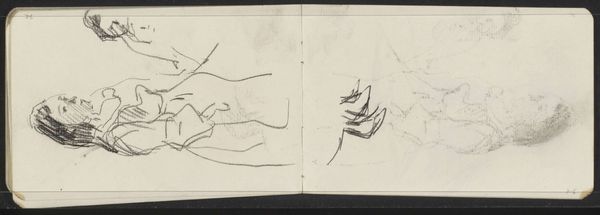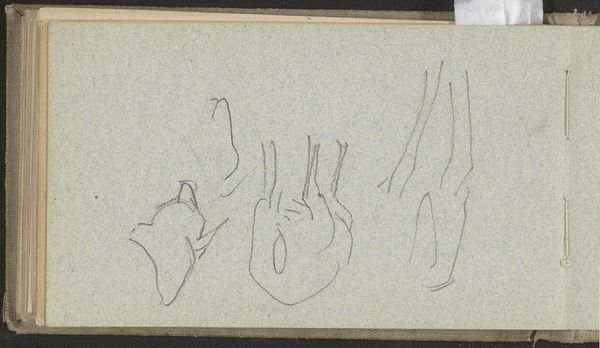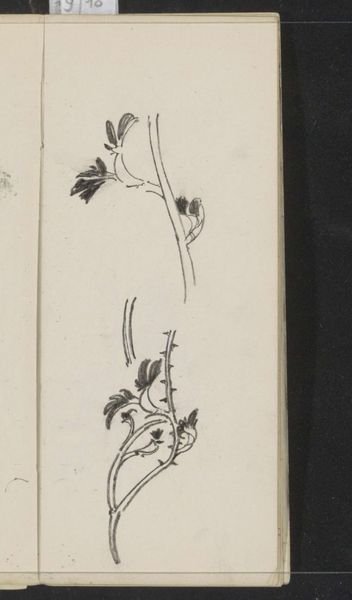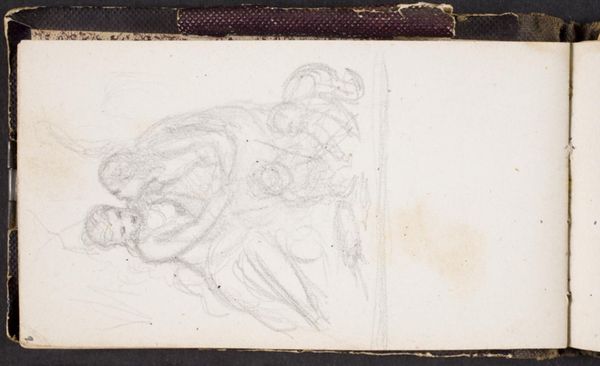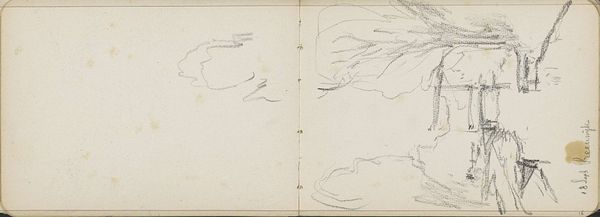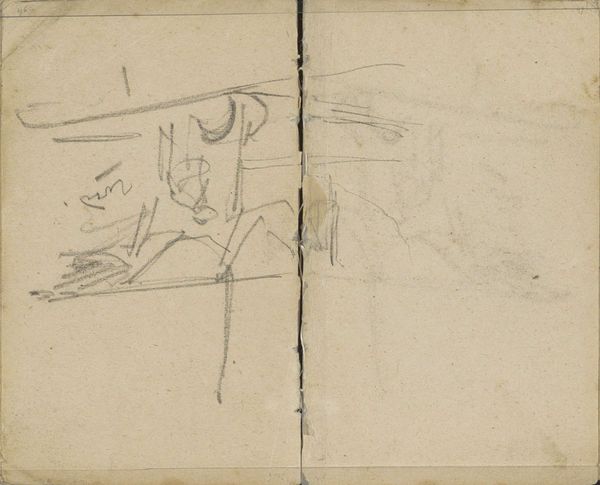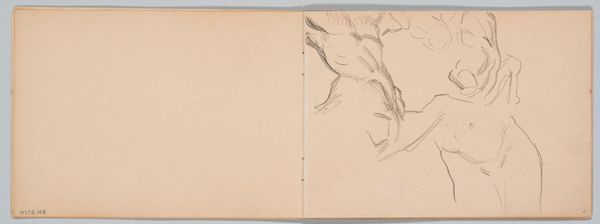
drawing, paper, pencil
#
drawing
#
imaginative character sketch
#
light pencil work
#
organic
#
quirky sketch
#
incomplete sketchy
#
landscape
#
paper
#
personal sketchbook
#
idea generation sketch
#
character sketch
#
ink drawing experimentation
#
pencil
#
sketchbook drawing
#
naturalism
#
sketchbook art
Copyright: Rijks Museum: Open Domain
Editor: This is "Stengels van een plant," or "Stems of a Plant," by Antoon Derkinderen, likely created between 1892 and 1901. It's a delicate pencil drawing on paper, almost like a study from a sketchbook. It feels so preliminary, and personal somehow. What do you see in this piece, what strikes you? Curator: The sparseness itself strikes me. It feels less like a botanical study and more like an exploration of symbolic forms, like early alphabets from a lost language. The plant stems, simplified to near abstraction, become carriers of deeper, perhaps subconscious, meaning. Consider how line quality mimics growth, the way a slight curve can indicate potential or vulnerability. Do you see how the thorn, rendered with such precision, acts almost as a sentinel? Editor: That’s a really interesting idea – the stems as letters, and the thorns as sentinels. I was just seeing them as sketches, but your reading gives them so much more weight. So the personal, sketchy style is significant, because it opens up an intimacy that would invite personal meaning, right? Curator: Precisely. It’s an invitation into the artist’s thought process. The sketch doesn't conceal, it reveals. We often forget that drawing itself has its own cultural memory, tied to mark-making, record-keeping, and ultimately, storytelling. Look at indigenous rock art: a simple line can represent an entire narrative. Here, Derkinderen utilizes a similarly economic visual language, asking us to project our own stories onto these stems. What feelings are stirred in you by this projection? Editor: I feel this strange sense of growth and fragility at the same time. Like a story that could either blossom or be easily erased. It wasn't what I expected from plant drawing. Curator: And that tension between potential and vulnerability, perhaps, is the essence of its enduring power. Thanks, it made me rethink my own assumptions. Editor: Me too. Thanks to you, I learned to look deeper. I really appreciate it!
Comments
No comments
Be the first to comment and join the conversation on the ultimate creative platform.

